New Turkish Power Play Over the Greece-Cyprus Electricity Interconnector
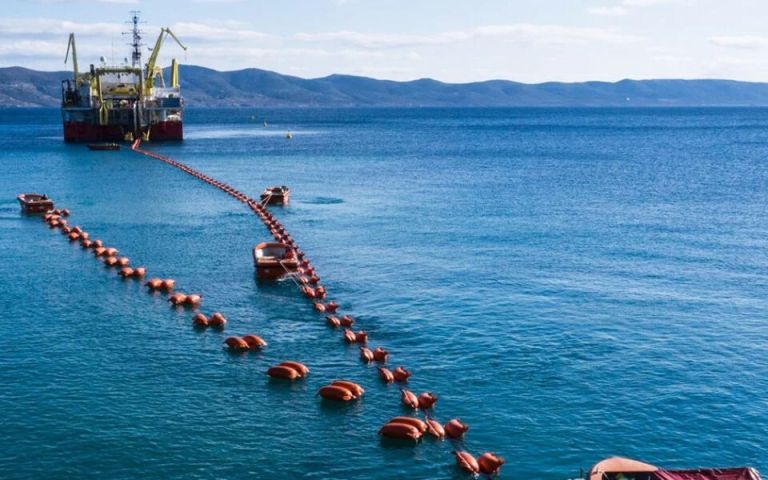
Πηγή Φωτογραφίας: Διαδίκτυο//New Turkish Power Play Over the Greece-Cyprus Electricity Interconnector
The message sent by the dispatch of a Turkish warship to the Northern Cretan Sea and the test east of Kasos. Turkey’s cooperation with Libya and discussions regarding the interconnection of their electricity grids.
Ankara’s move to dispatch a warship to monitor new surveys for the Greece-Cyprus electricity interconnector, despite these surveys being conducted in the northern Cretan Sea, confirms the high-stakes nature of this project for Greek-Turkish relations.
Yesterday’s incident, occurring on the same day as the scheduled meeting between Gerapetritis and Fidan in Doha, where the Greek side raised the issue (according to diplomatic sources, although the response remains unknown), sends a clear message about Turkey’s intentions.
Following months of inactivity on the matter, the Heraklion station recently issued two Navtex notices for cable-laying surveys: one for the vessel Ievoli Relume (081/25) and another for the NG Worker (086/25), north of Malia and Agios Nikolaos in the Lasithi prefecture, in areas just outside Greek territorial waters.
This marks the first development in months concerning the geopolitical aspect of the cable, with the work of the two Italian vessels extending, albeit slightly, into international waters.
Although neither area can be considered adjacent to the illegal Turkish-Libyan memorandum, and therefore not part of Turkish claims, Ankara nevertheless dispatched a warship to monitor the surveys from a distance, reportedly positioned 10 nautical miles away.
Correspondingly, a Greek frigate and a Coast Guard vessel are monitoring the movements of the Turkish corvette, which allegedly transmitted a radio signal claiming the Italian research vessel was operating outside its jurisdiction.
Sources familiar with the matter suggest that dispatching a Turkish vessel to monitor the surveys as soon as they ventured slightly outside Greek territorial waters was anticipated.
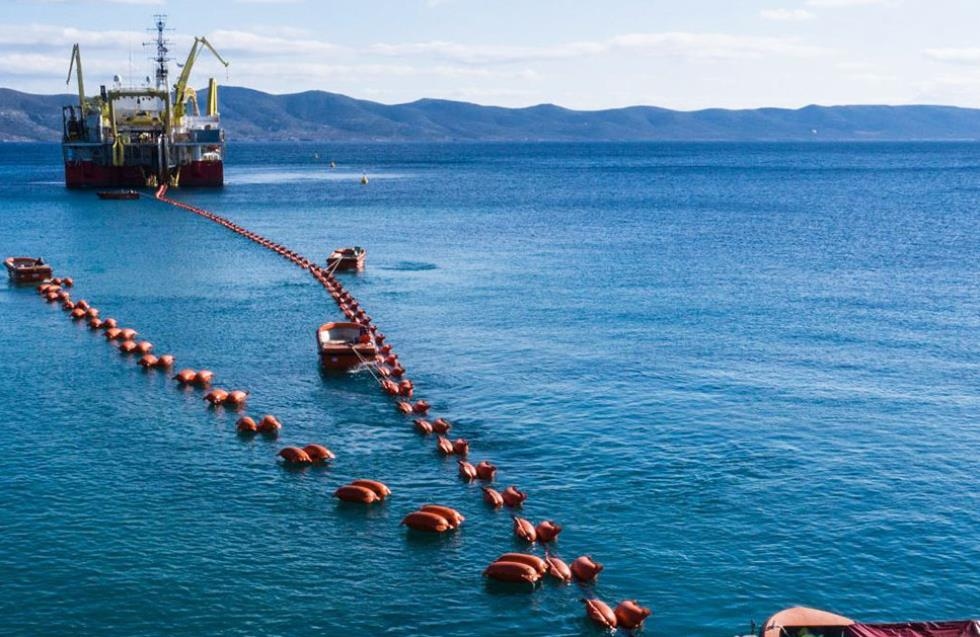
The Test East of Kasos
This action sends a broader message that Turkey is monitoring even Greece’s exercise of sovereign rights around the 25th meridian. This line roughly divides the Aegean Sea, with the areas east of it being disputed by Turkey.
It is interpreted as a warning against Greece potentially resuming surveys, after months of inactivity, where they were interrupted last July following the Kasos incident, i.e., in areas outside Greek territorial waters and initially within the delimited Greek EEZ with Egypt, parts of which are overlapped by the illegal Turkish-Libyan memorandum. At that time, Turkey also issued its own Navtex, claiming that the Antalya station was responsible for issuing announcements in that zone.
As Euro2day.gr reported, citing sources familiar with the process, once the relevant Greek Navtex for surveys east of Kasos is issued, it will be imperative for Greece, as it is now, to ensure the unhindered conduct of the surveys and essentially protect the exercise of sovereign rights within its EEZ delimited with Egypt.
These events unfold amidst uncertainty surrounding Trump’s stance on Greek-Turkish relations. The Greek government appears focused on maintaining calm waters, even if there is no progress on major issues (continental shelf, EEZ), and a date for the Mitsotakis-Erdogan meeting in Ankara, despite initial reports suggesting it would take place in February, has not yet been set.
In essence, the Greece-Cyprus electricity interconnector continues to be governed by the same “waiting doctrine” that applies to all of Greece’s major maritime projects (with the exception of Gregy, where surveys have not yet commenced).
This same doctrine has been applied to marine parks in the Aegean and recently to offshore wind farms. Fourteen months after the National Plan with over twenty plots was presented, the Joint Ministerial Decision that would activate it remains stalled. The latest obstacle, as reported by Euro2day.gr, is the involvement of the Ministry of Foreign Affairs, which is being asked to give the green light again, apparently for geopolitical reasons, as there are no technical issues.
Turkey-Libya Cooperation
While Turkey has made it clear that it will not accept being excluded from the future energy corridors crossing the Eastern Mediterranean, Greece must also monitor several other developments.
These include both the Qatar-Europe natural gas pipeline project via Turkey and Syria, which Ankara revived immediately after the fall of the Assad regime, and discussions with the Tripoli government in Libya about interconnecting the two countries’ grids, with which Turkey maintains privileged relations.
In addition to exploiting Libya’s natural resources, an ambitious investment plan mentioned by the head of Turkey’s state oil company (TPAO), Ahmet Türkoğlu, at the Tripoli Energy Summit a few days ago, the two countries are also preparing to sign a memorandum of understanding on renewable energy sources.
Speaking to the Anadolu agency on the subject a few days ago, Osama Al Darat, the Libyan Prime Minister’s energy advisor, claimed that the electrical interconnection of the two countries is also on the agenda.
“A committee is being set up to accelerate cross-border electricity interconnections. We have signed agreements with several countries in Southern Europe and the Mediterranean. As for Turkey, we believe that interconnection could be facilitated through a neighboring country, allowing energy transfer between Libya and Turkey,” said Prime Minister Dbeibah’s advisor, without clarifying whether he was referring to Greece.
Those closely following developments in the region will recall Athens’ occasional overtures to the Tripoli regime. This shift by the Greek government is dictated by the logic that, precisely because of the risks posed by the Turkish-Libyan memorandum, Greece must establish a level of communication with the Dbeibah government to avoid having an extremely limited or even zero ability to intervene in developments that concern it.
In this context, at the end of 2023, Osama Al Darat raised the issue with Greece’s then-chargé d’affaires in the country. A competent committee was reportedly formed, and ADMIE was informed, but no progress has been reported since.
Plans for Syria
While it remains unclear what of what was discussed at the recent Tripoli Energy Summit will materialize, Turkey’s activity regarding energy investments in Syria, aimed at further strengthening its geopolitical influence, does not go unnoticed.
Speaking to journalists a few days ago, Turkish Energy Minister Alparslan Bayraktar announced plans to build a natural gas pipeline to Aleppo, Syria, to address severe energy shortages in the war-torn region.
He stated that the project would take 12 to 15 months, spoke of efforts to restore the region’s electricity infrastructure, and generally described an immediate plan to increase electricity supply to northern Syria by 50%.
Source: pagenews.gr
Διαβάστε όλες τις τελευταίες Ειδήσεις από την Ελλάδα και τον Κόσμο







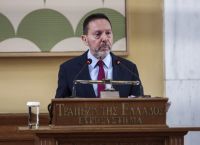
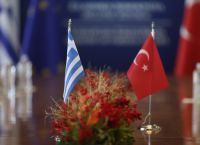
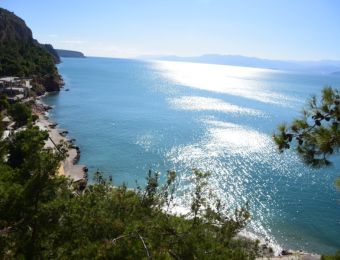

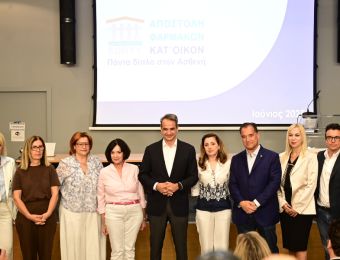

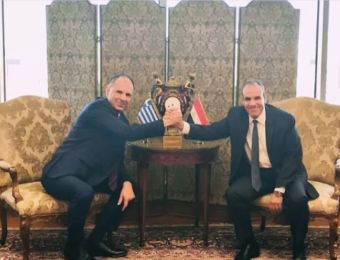

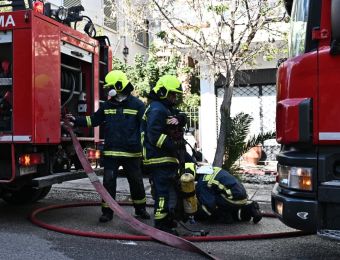
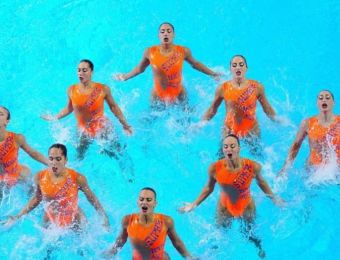
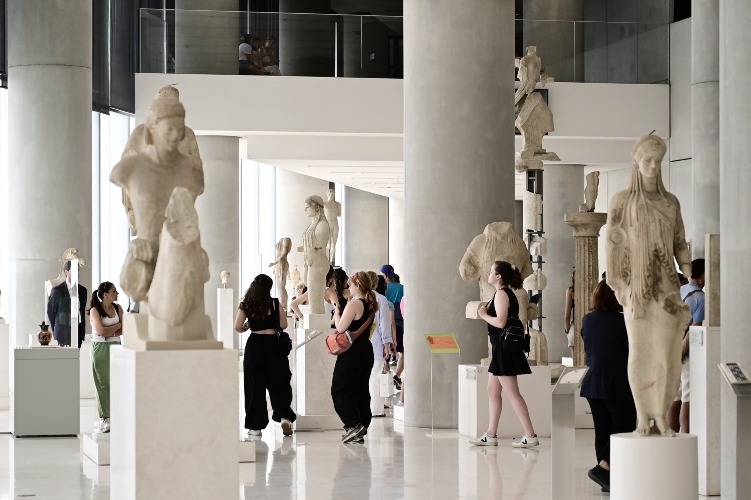

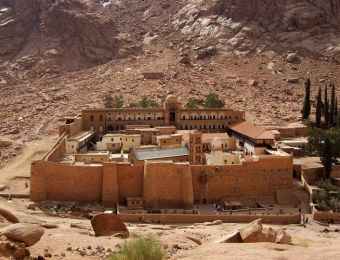
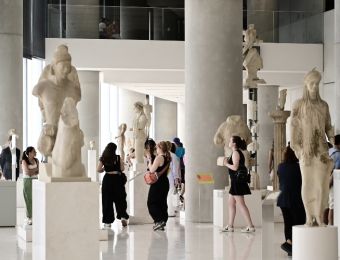
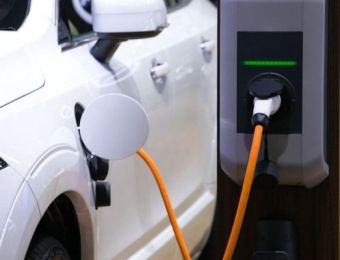
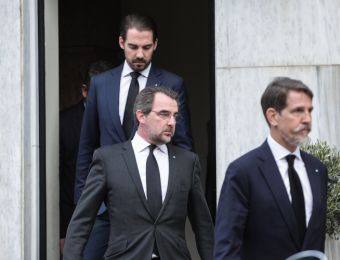


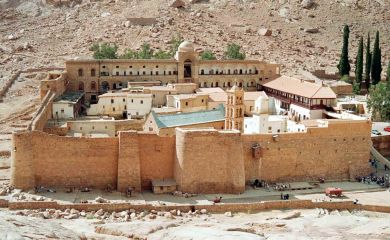
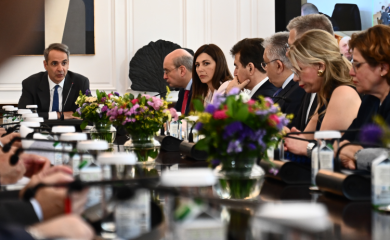

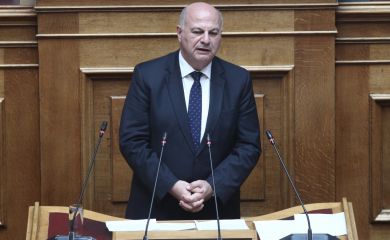
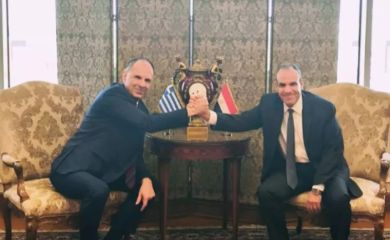
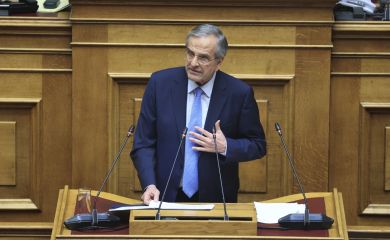
Το σχόλιο σας